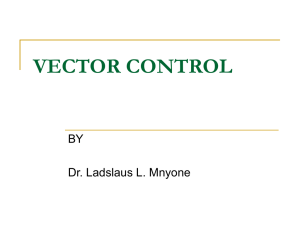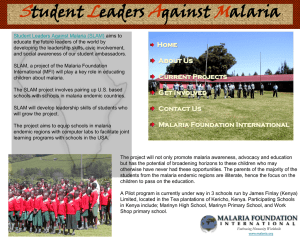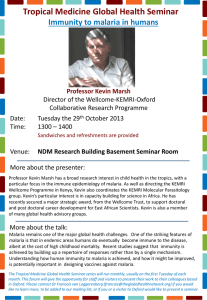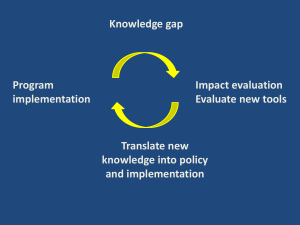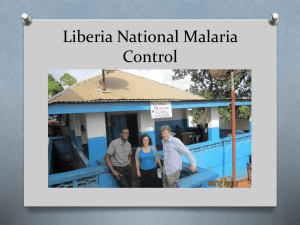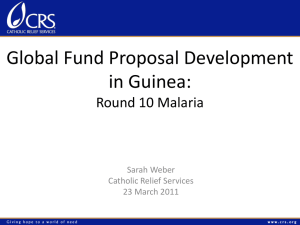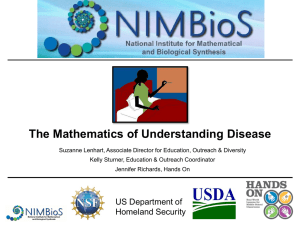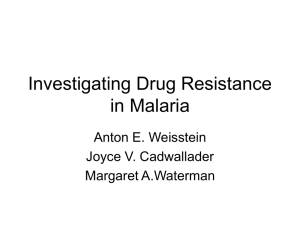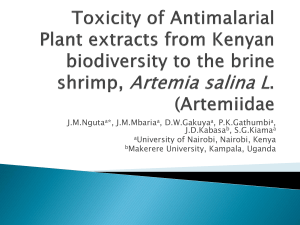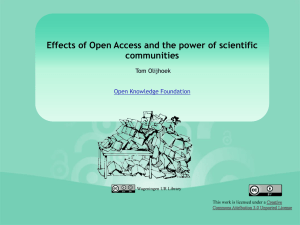Sarah_Kline_WMB_23.04.10
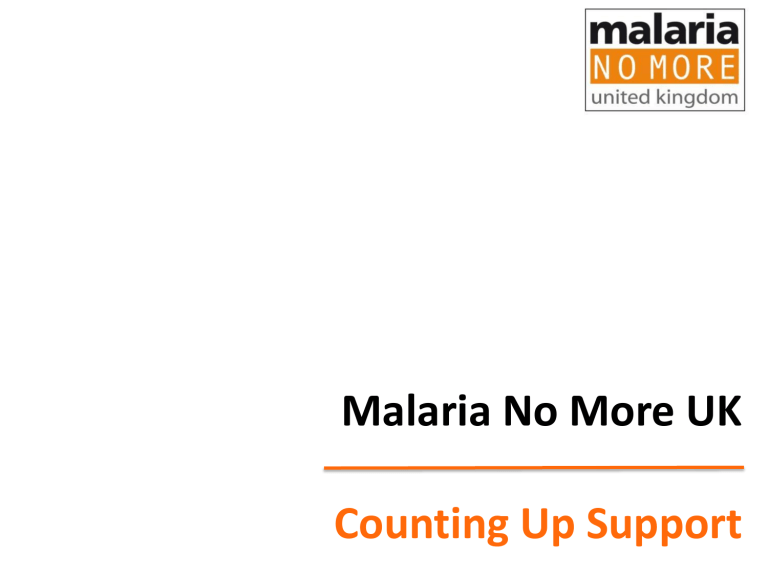
Malaria No More UK
Counting Up Support
Our objectives
• Increase political commitment and official donor funding for tackling malaria from the UK, EU & G8.
• Support malaria prevention and treatment through increased individual donations, government and private sector funding; and by supporting behaviour change communication efforts.
• Significantly increase UK public understanding of, and concern about, the impact of malaria in sub-Saharan
Africa. Use UK based stakeholders including media to influence international opinion, particularly in Africa.
Progress towards goals
The last 10 years have seen strong and rapid progress in the number of households owning at least one ITN – but we still have a long way to go. We also need comparable progress on RDT and ACT access and availability.*
* Source: RBM Progress and Impact Series, 2010 World Malaria Day Africa Update
A new approach
Combine a powerful blend of funding, advocacy, popular campaigning and on-the-ground implementation to achieve our goal of ending malaria deaths.
Advocacy success
2009 Early Day Motion: 137 MPs signed up from across all the major parties (double 2008 figures)
2010 manifesto commitments on malaria from each of the UK’s major political parties:
• Conservatives: £500 million/yr to tackle malaria
• Labour: £1 billion in funding to the Global Fund from 2008-15, deliver 30 million nets by 2013
• Liberal Democrats: pledge to prioritise health programmes to restrict the spread of malaria
Broadening media appeal
• Media coverage valued at £5.5 million
• Charity of choice for I’m A Celebrity...Get Me Out of
Here! 2009 which raised funds for Ghana
• Combined circulation of print, radio, broadcast and online news coverage >550 million, including:
BBC World: Hard Talk - Ray Chambers
BBC World documentary: Jo Yirrell in Ghana
Al Jazeera online: Yousssou N’Dour
BBC World Service: World Malaria Report
Partnerships to maximise impact in Africa
We work with a range of partners across sectors, encompassing corporations, governments, faithbased organisations, and other NGOs.
Programmes funded by Malaria No More UK:
• Clinton Foundation/SAMEST in Botswana: net distribution and education campaign, mobile phone surveillance
• NetsforLife in Ghana, in partnership with Comic
Relief, NMCP, and USAID/PMI: net distribution and education campaign for 1 million nets to
600,000 households
Armajaro/Source Trust: Provided free bed nets to
50,000 farmers in Ghana in their first year.
4.4 Billion reasons to engage with faith
Lambeth Palace: 2010 Archbishop of
Canterbury first-ever broadcast message to mark World Malaria Day.
Tony Blair Faith Foundation: multi-faith community mobilisation activities, raising tens of thousands of pounds and recruiting future leaders to fight malaria.
Premier Christian Media: a two month onair, online and print campaign to educate their listeners about malaria and raise support to fight the disease.
Future challenges
• Ongoing impact of the economic crisis: G8 countries may renege on aid commitments; negative impact on corporate investment and public donations.
• Potential change in the UK government: greater focus on problems within the UK’s borders.
• Concerns about development effectiveness: need to communicate success and demonstrate impact.
• Strengthening African ownership and leadership: i nvest in behaviour change communications and ensure high level political support for malaria prevention and treatment.
Future opportunities
• Building on unprecedented levels of political & public support: Idol Gives Back, Sport Relief, I’m a Celebrity.
•Using popular culture and social media to engage mass audiences. Themes include sport, fashion, music. Twitter, facebook and leading online sites increase profile.
• The UK public are part of a good news story - helping make malaria no more.
• Profiling UK based stakeholders who are leading the fight against malaria.
